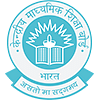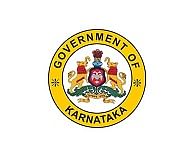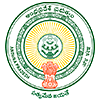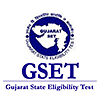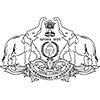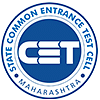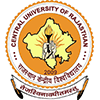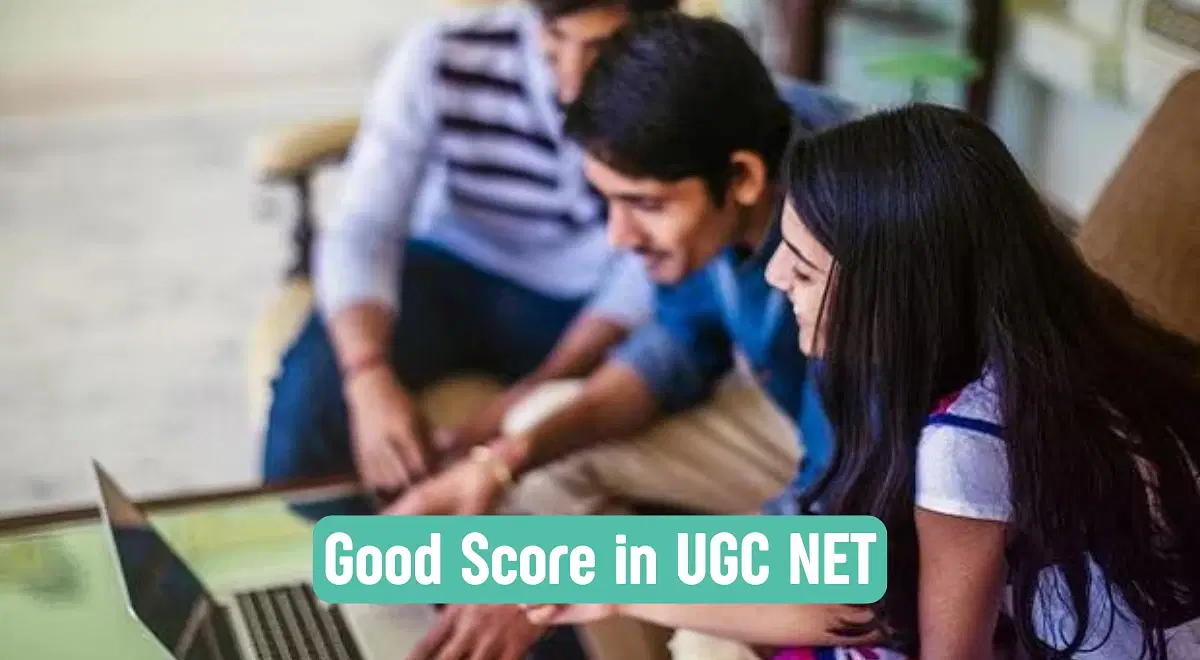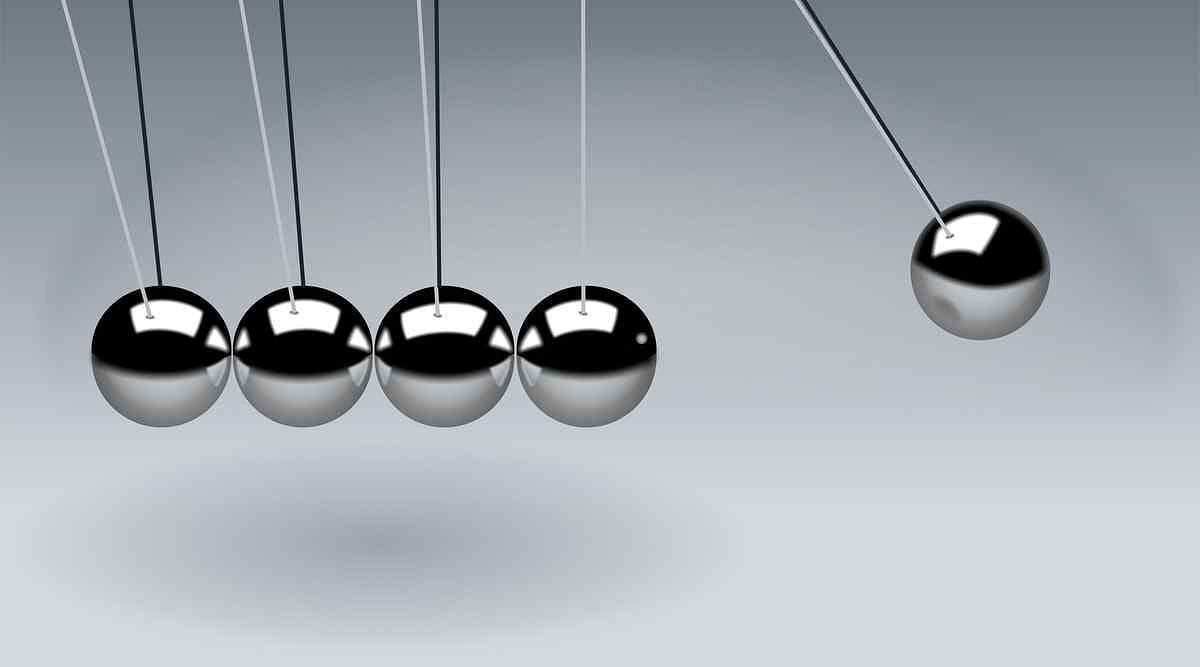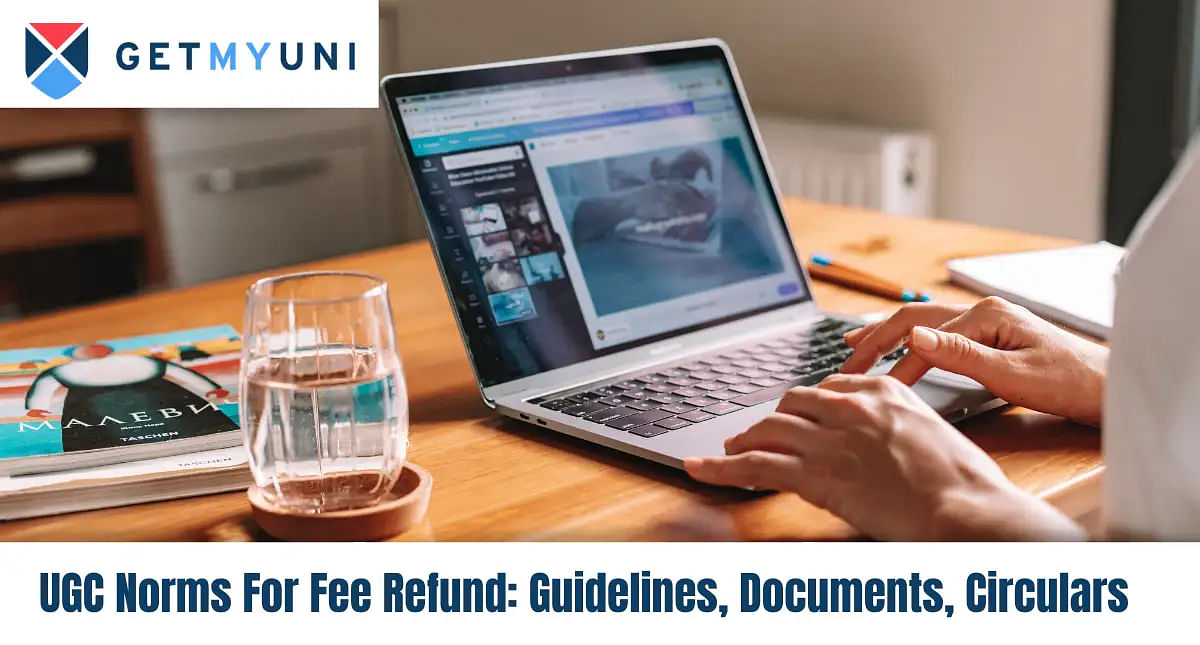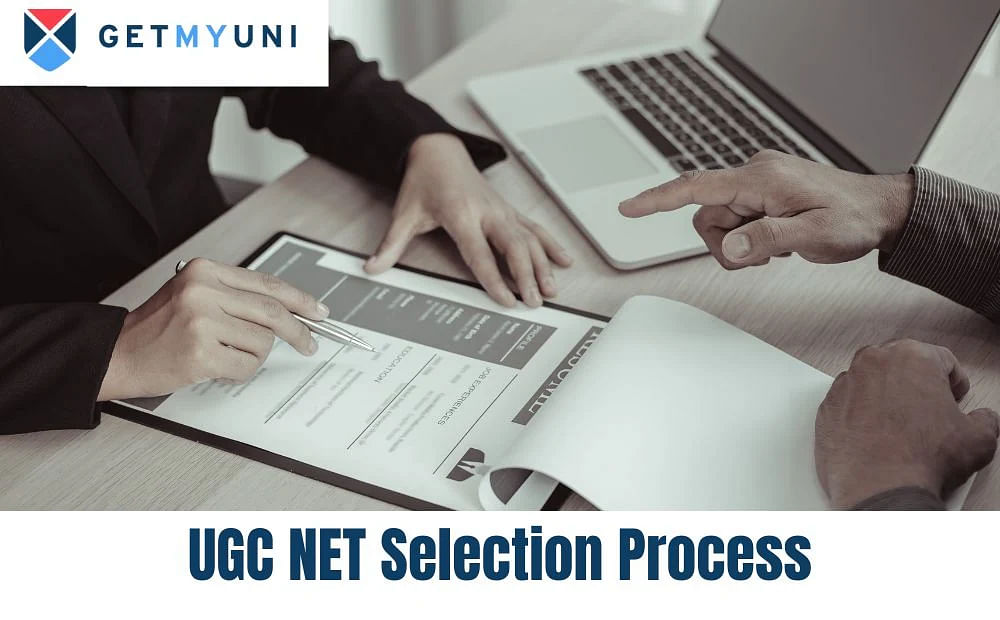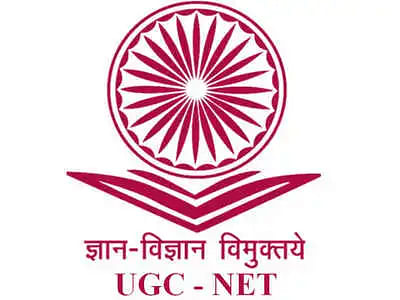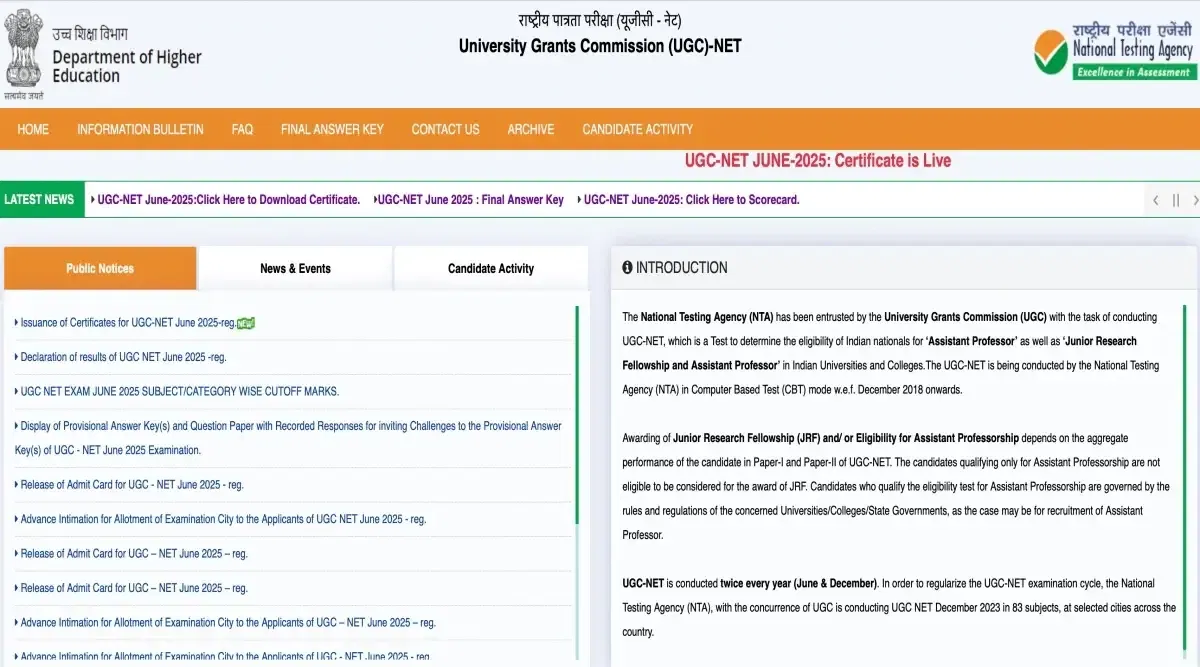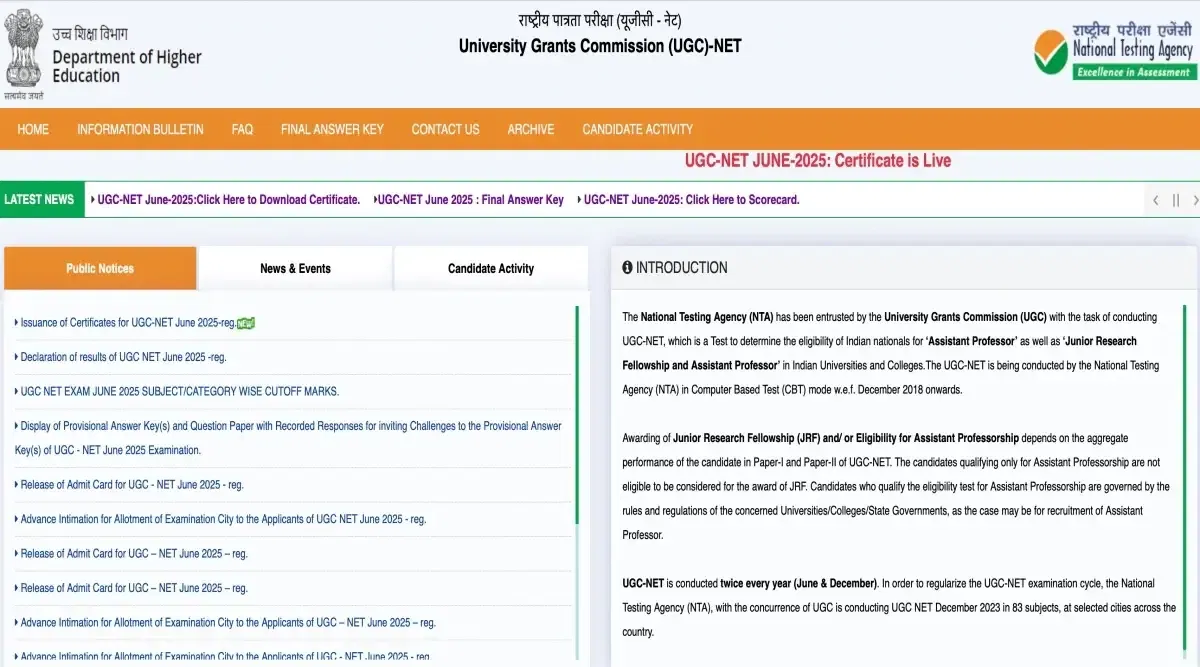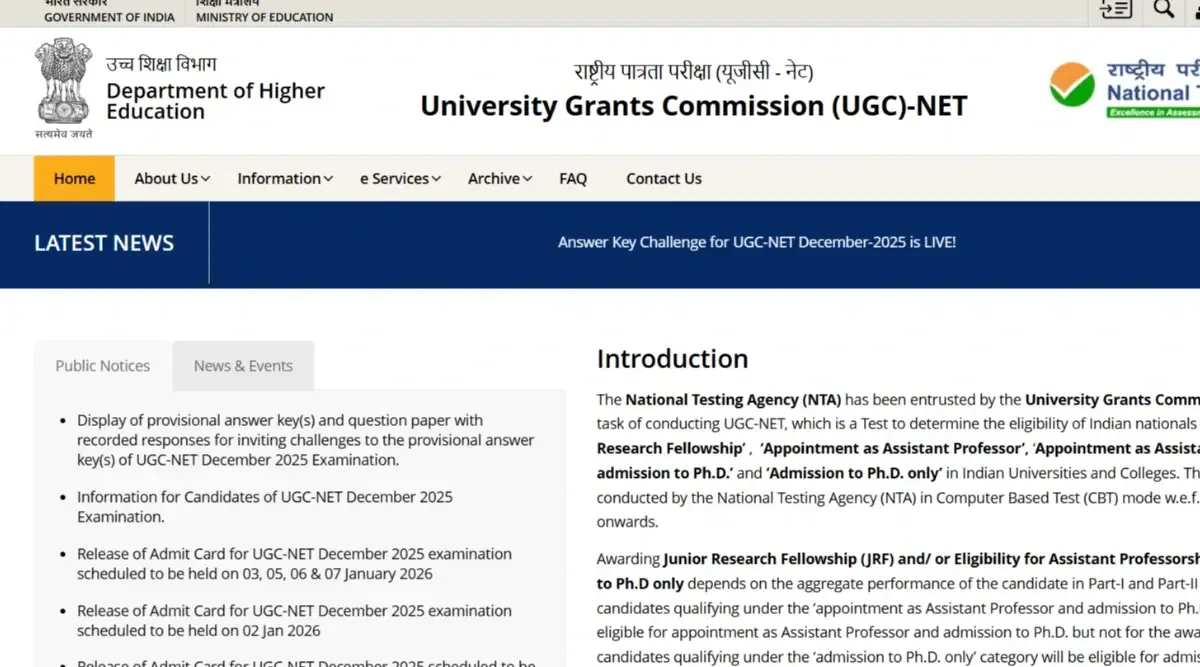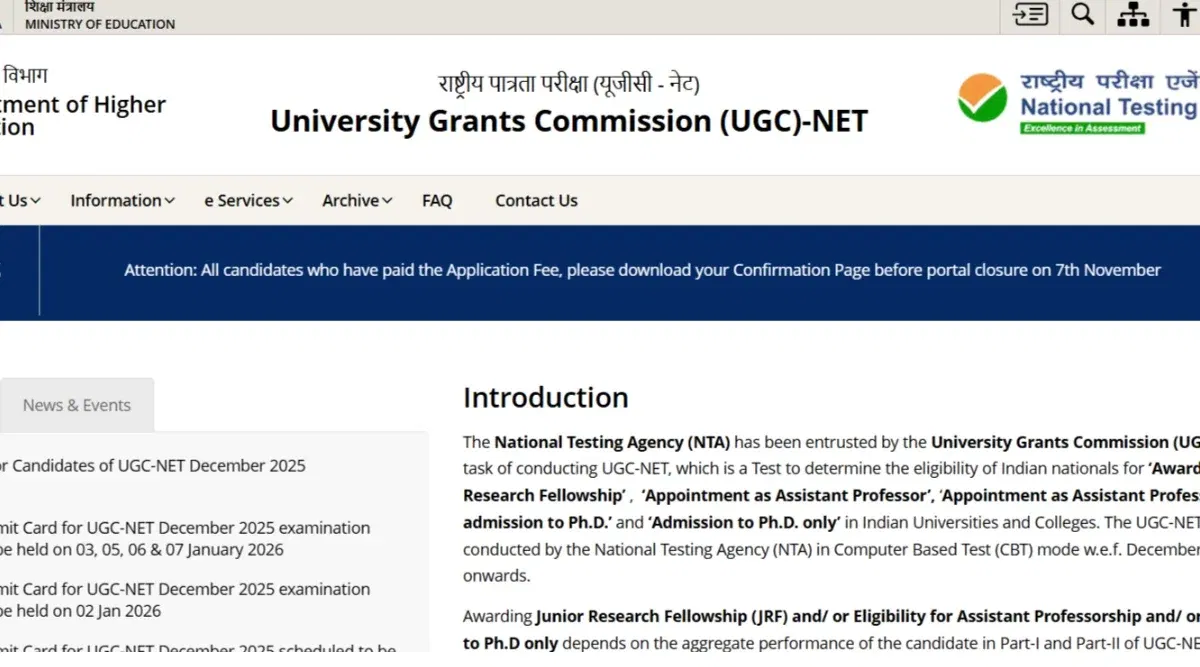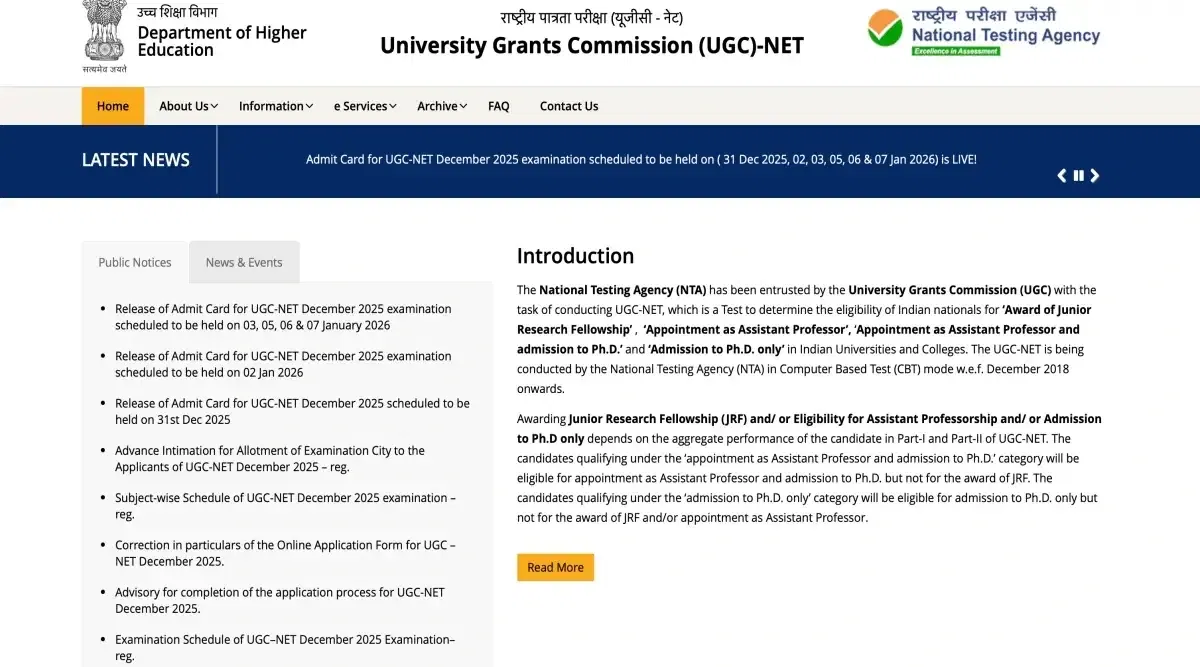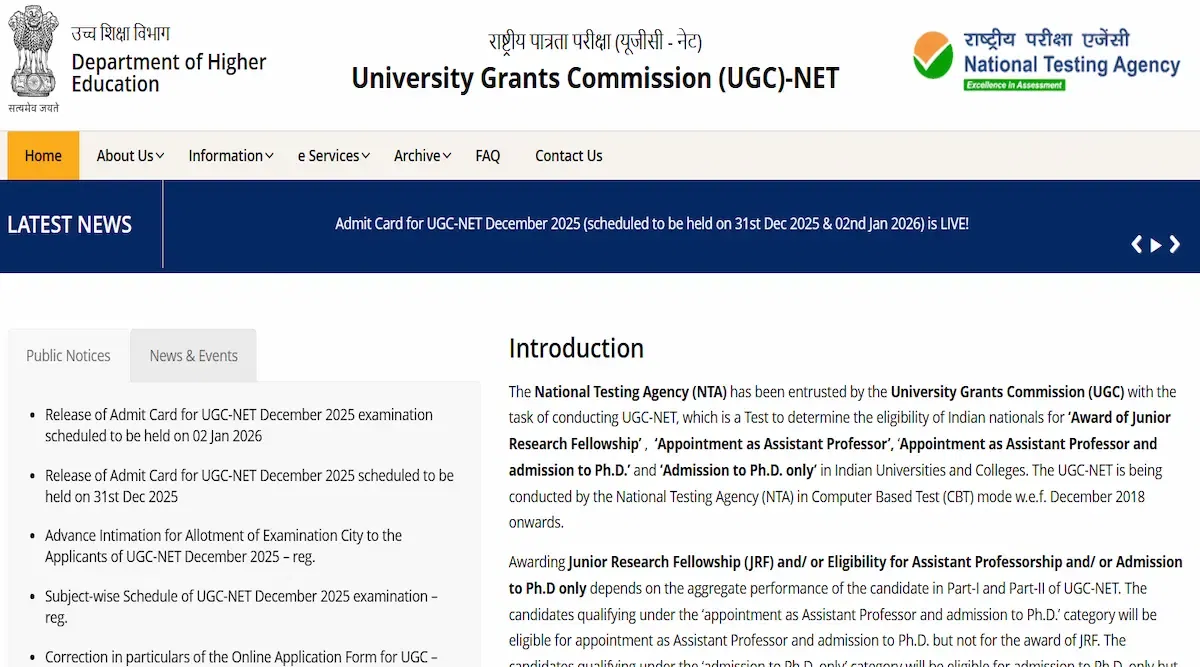
Table of Contents
The National Testing Agency (NTA) will conduct the exam for the Psychology subject in the first week of January 2026 (tentative) for the December session. The NTA UGC NET psychology syllabus 2025 comprises various topics such as the Emergence of Psychology, Psychological Testing, Biological Basis of Behaviour, Attention, Perception, Learning, Memory and Forgetting, Thinking, Intelligence and Creativity, and more. The paper is split into Paper I and Paper II with Multiple Choice Questions (MCQs).
The UGC NET syllabus 2025 psychology contains important subjects, particularly for psychology enthusiasts. Candidates have the liberty to choose any type of subject (honours/expertise) for the posts of Lectureship/Junior Research Fellowship (JRF) for the UGC NET 2025 examination.
UGC NET 2025 Psychology Syllabus PDF: Direct Link
You can check the UGC NET Psychology syllabus PDF free download 2025 direct link in the table below.
| Particulars | Details |
| UGC NET Psychology Syllabus PDF Download 2025 | Download Here |
UGC NET Psychology Syllabus 2025 Highlights
The major highlights of the UGC NET Psychology syllabus 2025 are tabulated below.
| Particulars | Details |
| Exam Conducting Body | National Testing Authority (NTA) |
| UGC NET Psychology Exam Date 2025 | January 2026 (tentative) |
| UGC NET Psychology Application Form 2025 | November to December 2025 (tentative) |
| UGC NET Psychology Application Correction Window Dates 2025 | December 2025 (tentative) |
| Exam Mode | Computer-based Test (Online) |
| Marking Scheme |
|
| Official Website | ugcnet.nta.ac.in |
Chapter-wise UGC NET 2025 Psychology Syllabus
The following Unit (I-X) represents the chapter and section-wise topics as per the psychology NET syllabus. The UGC NET Psychology syllabus 2025 paper 1 is exhaustive, which requires a thorough understanding.
- Emergence of Psychology
- Research Methodology and Statistics
- Psychological Testing
- Biological Basis of Behaviour
- Attention, Perception, Learning, Memory, and Forgetting
- Thinking, Intelligence, and Creativity
- Personality, Motivation, Emotion, Stress, and Coping
- Social Psychology
- Human Development and Interventions
- Emerging Areas
Unit I - Emergence of Psychology
The study on the occurrence of human behaviour and their mental processes based on the emergence of psychology in India, to address social issues, disciplinary identity crisis. This unit covers learning about the emergence of psychology during the Western, Greek, medieval, and modern periods, and different aspects of knowledge paradigms, the primacy of self-knowledge in Indian psychology.
| Topic | Sub-Topic |
| Psychological thought in some major eastern systems | Bhagavad Gita, Buddhism, Sufism, and Integral Yoga |
| Academic Psychology in India | Pre-independence era, post-independence era, 1970s: The move to addressing social issues; 1980s: Indigenisation; 1990s: Paradigmatic concerns, disciplinary identity crisis; 2000s: Emergence of Indian psychology in academia. Issues: The colonial encounter, Postcolonialism and psychology, Lack of distinct disciplinary identity |
| Western | Greek heritage, the medieval period, and the modern period. Structuralism, functionalism, psychoanalysis, Gestalt, behaviourism, humanistic existentialism, transpersonal, cognitive revolution, multiculturalism. Four founding paths of academic psychology - Wundt, Freud, James, Dilthey |
| Issues | Crisis in psychology due to strict adherence to the experimental analytical paradigm (logical empiricism). Indic influences on modern psychology |
| Essential Aspects of Knowledge Paradigms | Ontology, epistemology, and methodology. Paradigms of western psychology: positivism, post-positivism, critical perspective, social constructionism, existential phenomenology, and co-operative Enquiry. Paradigmatic controversies. Science and spirituality (avidya and vidya). The primacy of self-knowledge in Indian psychology |
Also Read: UGC NET Books: Best Books for UGC NET Preparation
Unit II - Research Methodology and Statistics
The research methodology and statistics system of methods used for investigating the concepts on psychological aspects, which includes variables, sampling, observation, theory, focus groups, in-depth case studies, correlational type of analysis, regression, factor analysis, interpretation, and experimental designs.
| Topic | Sub-Topic |
| Research | Meaning of research, purpose, and dimensions. Research problems, variables and operational definitions, hypothesis, sampling. Ethics in conducting and reporting research |
| Paradigms of Research | Quantitative, qualitative, mixed methods approach |
| Methods of Research | Observation, survey [interview, questionnaires], experimental, quasi-experimental, field studies, cross-cultural studies, phenomenology, grounded theory, focus groups, narratives, case studies, ethnography |
| Statistics in Psychology | Measures of central tendency and dispersion. Normal probability curve. Parametric [t-test] and non-parametric tests [Sign Test, Wilcoxon Signed Rank test, Mann-Whitney test, Kruskal-Wallis test, Friedman]. Power analysis. Effect size |
| Correlational Analysis | Correlation [product moment, rank order], partial correlation, multiple correlations |
| Special correlation methods | Biserial, point biserial, tetrachoric, phi coefficient |
| Regression | Simple linear regression, multiple regression |
| Factor Analysis | Assumptions, methods, rotation, and interpretation |
| Experimental Designs | ANOVA [One-way, factorial], randomised block designs, repeated measures design, Latin square, cohort studies, timeseries, MANOVA, ANCOVA. Single-subject designs |
Also Read: How to Crack UGC NET Exam? Tips, Syllabus
Unit III - Psychological Testing
Learning about the conduct of physiological tests, a person's skills, intellect level, expressiveness, interests, and attitude are administered via psychological testing by the experts or trainers with proper regulated guidelines. The following list will give you a brief idea:
| Topics | Sub-topics |
| Types of Tests | Test construction: Item writing, item analysis |
| Test Standardization | Reliability, validity, and norms |
| Areas of Testing | Intelligence, creativity, neuropsychological tests, aptitude, personality assessment, interest inventories |
| Attitude Scales | Semantic differential, staples, Likert scale. Computer-based psychological testing |
| Applications of Psychological Testing in Various Settings | Clinical, organisational and business, education, counselling, military, career guidance |
Also Read: UGC NET Salary: In-Hand Salary, Allowances & Perks
Unit IV - Biological Basis of Behaviour
Studies with regard to the way in which a certain individual presents themselves when in a society, group, or private manner are dealt with in this unit.
| Topics | Sub-topics |
| Sensory Systems | General and specific sensations, receptors, and processes |
| Neurons | Structure, functions, types, neural impulse, synaptic transmission, neurotransmitters |
| The Central and Peripheral Nervous Systems | Structure and functions, neuroplasticity |
| Methods of Physiological Psychology | Invasive methods – Anatomical methods, degeneration techniques, lesion techniques, chemical methods, and microelectrode studies. Non-invasive methods – EEG, scanning methods |
| Muscular and Glandular System | Types and functions |
| The Biological Basis of Motivation | Hunger, thirst, sleep, and sex |
| The Biological Basis of Emotion | The limbic system, hormonal regulation of behaviour |
| Genetics and behaviour | Chromosomal anomalies; nature-nurture controversy [Twin studies and adoption studies] |
Also Read: What are the Benefits of Clearing the UGC NET Exam?
Unit V - Attention, Perception, Learning, Memory, and Forgetting
This section gives more attention to the psychological forms, models, perception, focus on the details, and its approaches, theories, fundamentals, the practice by which minds store and remember, long-term of storing memories, and memory power.
| Topics | Sub-topics |
| Attention | Forms of attention, models of attention |
| Perception | Approaches to the study of perception: Gestalt and physiological approaches, perceptual organization: Gestalt, figure and ground, law of organization, perceptual constancy: size, shape, and colour, illusions, perception of form, depth, and movement, role of motivation and learning in perception |
| Signal Detection Theory | Assumptions and applications of subliminal perception and related factors, information processing approach to perception, culture and perception, perceptual styles, pattern recognition, ecological perspective on perception |
| Learning Process and Fundamental Theories | Thorndike, Guthrie, Hull Classical Conditioning: procedure, phenomena and related issues instrumental learning: phenomena, paradigms and theoretical issues; reinforcement: basic variables and schedules; behaviour modification and its applications of cognitive approaches in learning: latent learning, observational learning. Verbal learning and discrimination learning Recent trends in learning: Neurophysiology of learning |
| Memory and Forgetting: Memory Processes | Encoding, storage, retrieval stages of memory: sensory memory, short-term memory (Working memory), long-term memory (Declarative – Episodic and Semantic; Procedural) theories of forgetting: Interference, retrieval failure, decay, motivated forgetting |
Also Read: Best Career Options After Qualifying UGC NET
Unit-VI - Thinking, Intelligence and Creativity
This unit deals with the ideology behind the topics, focusing on the ability to think, intellectual level, and utilisation of imagination power, the production level, and capability of formulating strategies, decision making, awareness, and consciousness of an individual's thought process.
| Topics | Sub-topics |
| Theoretical Perspectives on Thought Processes | Associationism, Gestalt, information processing, feature integration model, concept formation: Rules, Types, and Strategies; Role of concepts in thinking, types of reasoning, language, and thought |
| Problem-Solving | Type, strategies, and obstacles |
| Decision-Making | Types and models |
| Metacognition | Metacognitive knowledge and metacognitive regulation |
| Intelligence | Spearman; Thurstone; Jensen; Cattell; Gardner; Stenberg; Goleman; Das, Kar & Parrila |
| Creativity | Torrance, Getzels & Jackson, Guilford, Wallach & Kogan Relationship between intelligence and creativity |
Also Read: How to Crack UGC NET in First Attempt? Strategies, Tips
Unit VII - Personality, Motivation, Emotion, Stress, and Coping
The study on the combination of characteristics or qualities that build up a human being's character or their behaviour through the account of motivating thoughts and action, emotion, stress, and coping with situations in various modes towards the reaction is what this unit deals with.
| Topics | Sub-topics |
| Determinants of Personality | Biological and socio-cultural approaches to the study of personality: Psychoanalytical, neo-Freudian, social learning, trait and type, cognitive, humanistic, existential, transpersonal psychology. Other theories: Rotter's Locus of Control, Seligman's Explanatory styles, Kohlberg’s theory of moral development |
| Basic Motivational Concepts | Instincts, needs, drives, arousal, incentives, motivational cycle. Approaches to the study of motivation: Psychoanalytical, ethological, S-R cognitive, humanistic |
|
Exploratory Behaviour and Curiosity Zuckerman's Sensation seeking Achievement, affiliation, and power motivational competence self-regulation flow |
|
| Emotions | Physiological Correlates Theories of Emotions: James-Lange, Cannon-Bard, Schachter and Singer, Lazarus, Lindsley, emotion regulation |
| Conflicts | Sources and types of stress and coping: Concept, models, type A, B, C, D behaviours, stress management strategies [biofeedback, music therapy, breathing exercises, progressive muscular relaxation, guided imagery, mindfulness, meditation, yogasana, stress inoculation training] |
Unit VIII - Social Psychology
This unit is about studying the scope, history, nature, theoretical perspectives, influences by a group, and social factors, including applied psychology.
| Topics | Sub-topics |
| Social Psychology | Nature, scope, and history of social psychology |
| Traditional Theoretical Perspectives | Field theory, cognitive dissonance, sociobiology, psychodynamic approaches, social cognition |
| Social Perception | Communication, Attributions, attitude, and its change within a cultural context, prosocial behaviour |
| Group and Social Influence | Social Facilitation; Social loafing, Social influence [Conformity, Peer Pressure, Persuasion, Compliance, Obedience, Social Power, Reactance]. Aggression, Group dynamics, leadership style, and effectiveness. Theories of intergroup relations [Minimal Group Experiment and Social Identity Theory, Relative Deprivation Theory, Realistic Conflict Theory, Balance Theories, Equity Theory, Social Exchange Theory] |
| Applied Social Psychology | Health, environment, and law; personal space, crowding, and territoriality |
Unit-IX - Human Development and Interventions
This unit encompasses topics related to the learning on the development and intervention of humans towards their developmental processes, factors, and stages associated with development, especially psychopathology, psychotherapies, counselling, application of theories of motivation and learning in academic factors, and vice versa.
| Topics | Sub-topics |
| Developmental Processes | Nature, principles, factors in development, and stages of development. Successful ageing. Theories of development: Psychoanalytical, behavioristic, and cognitive. Various aspects of development: Sensory-motor, cognitive, language, emotional, social, and moral |
| Psychopathology | Concept, mental status examination, classification, causes |
| Psychotherapies | Psychoanalysis, person-centred, Gestalt, existential, acceptance and commitment therapy, behaviour therapy, REBT, CBT, MBCT, play therapy, positive psychotherapy, transactional analysis, dialectic behaviour therapy, art therapy, performing art therapy, family therapy |
|
Applications of theories of motivation and learning in school factors in educational achievement, teacher effectiveness, guidance in schools: needs, organisational setup, and techniques. |
|
| Counselling | Process, skills, and techniques |
Also Read: Best UGC NET Coaching Centre in India
Unit-X - Emerging Areas
Deals with the studies on sexuality issues, poverty, migration, and disability. Well-being of a person, their health, technological interface. The type of study that seeks to implement theories, practices that could help avoid violence or conflict and mitigate the effects on society.
| Topics | Sub-topics |
| Issues of Gender, Poverty, Disability, and Migration: Cultural bias and discrimination. Stigma, marginalisation, and social suffering; Child abuse and domestic violence. | |
| Peace Psychology | Violence, non-violence, conflict resolution at the macro level, the role of media in conflict resolution |
| Wellbeing and self-growth | Types of well-being [Hedonic and Eudemonic], character strengths, resilience, and post-traumatic growth |
| Health | Health-promoting and health-compromising behaviours, lifestyle and chronic diseases [Diabetes, Hypertension, Coronary Heart Disease], psychoneuroimmunology [Cancer, HIV/AIDS] |
| Psychology and Technology Interface | Digital learning; Digital etiquette: cyberbullying; Cyber pornography: Consumption, implications; Parental mediation of digital usage |
Click Here: UGC NET Psychology Syllabus PDF
UGC NET 2025 Psychology Exam Pattern
The questions will be of MCQ type in an online mode of exam conduction (Computer Based Test). Let us first understand the exam pattern for the UGC NET psychology syllabus.
Candidates can access the UGC NET Psychology syllabus 2025 PDF free download and the revised exam pattern from the official website. Candidates appearing should check out the revised syllabus:
- Paper I: Evaluate the candidate’s skills and eligibility for teaching and research ability
- Paper II: Questions will be based on the chosen subjects opted by the candidate
| Highlights | UGC NET Paper-I | UGC NET Paper-II |
| Test mode | Online | |
| Duration of test | 3 hours (180 minutes) | |
| Paper type | Common | Subject Specific/Preference-based questions |
| Questions type | Multiple Choice Questions (MCQs) | |
| No of Questions | 50 | 100 |
| Mark in Total | 100 | 200 |
| Marking Scheme | No negative Marking, 2 marks per correct response | |
| Language medium | English & Hindi | |
Note: There will be a continuation of the test with no break/short recess from Paper-I to Paper-II, unless emergencies/technical glitches.
Best Books for UGC NET 2025 Psychology Syllabus
Everyone wants to save time! Time is an important factor for the exam, and choosing books is one of the time-consuming activities in the midst of exam preparation, when it comes to high competition and limited time.
Also, choose books from the list given below for more meaningful information and backups. Some of the books, curated as per the UGC NET exam psychology syllabus, are provided in the following section.
| Books | Authors and Publishers |
| NTA UGC NET/JRF/SET Psychology (Paper 2) | Arihant Experts |
| NTA UGC NET/SET (JRF/LS) Psychology Teaching and Research Aptitude General (Paper 1) | Arihant Publishers |
| NTA UGC NET/SLET Psychology General (Paper 1) | Trueman’s |
| NTA UGC NET/JRF Solved Papers Geography (Paper 2) | Pratiyogita Sahitya |
| Introduction to Psychology | Tata McGraw-Hill, Morgan, C.T., King, Weiss, J.R. |
| CBSE NET Solved (Paper & 3) Psychology | Bookhive’s |
| UGC NET/SET Psychology | Dr Swati Maharshi (R Gupta’s) |
| UGC NET/SET/JRF Psychology (Papers 2 & 3) | Upkar Prakashan |
| Developmental Psychology | Stanrock, J.W. (2008) 11 Edition. |
| UGC NET/SET/JRF Psychology | Dr Kalika Jha |
| Social Psychology | Baron R.A and Byrne (1997,2001); 8th and 9th edition |
| Cognitive Psychology | Sternberg R.J. (2007) |
Read More: UGC NET reference books
FAQs on UGC NET Psychology
Q: What is the paper code of Psychology in UGC NET 2025?
The UGC NET Psychology paper code is 04 for 2025. Students must be aware of the exam codes that they are appearing for in the final examination.
Q: Is UGC NET Psychology tough?
The UGC NET Psychology exam is a bit tougher than the other exams as the questions asked are tricky. Candidates need to prepare well to answer all the questions asked in the examination. However, the difficulty level of a subject is entirely subjective.
Q: Who is eligible for UGC NET Psychology?
To be eligible for UGC NET Entrance, candidates must have completed their Master in Psychology in the relevant subject (like Psychology) with at least 55% marks from a university recognized by the Universities Grants Commission (UGC).
Q: When will the UGC NET 2025 December session notification be released?
The UGC NET 2025 December session notification will be released in September 2025 (tentatively). The notification will be released on the official website of the National Testing Agency (NTA) at ugcnet.nta.ac.in.
Q: What are some of the best books for UGC NET 2025 Psychology exam preparation?
Some of the best books for UGC NET 2025 Psychology preparation include:
- NTA UGC NET/JRF/SET Psychology (Paper 2) by Arihant Experts
- NTA UGC NET/SET (JRF/LS) Psychology Teaching and Research Aptitude General (Paper 1) by Arihant Publisher
- NTA UGC NET/SLET Psychology General (Paper 1) by Trueman’s
- Social Psychology by Baron R.A and Byrne (1997,2001); 8th and 9th edition, etc.
You can check the complete list of reference books for the UGC NET 2025 Psychology examination in this article.






